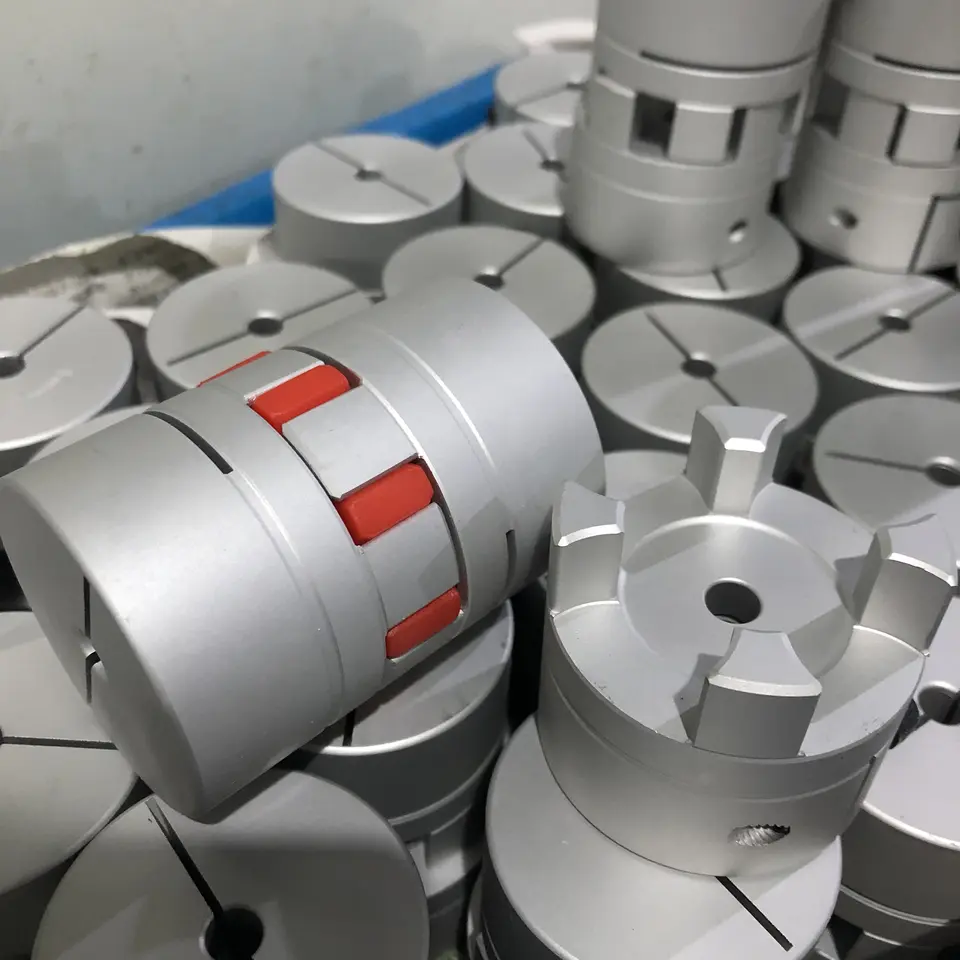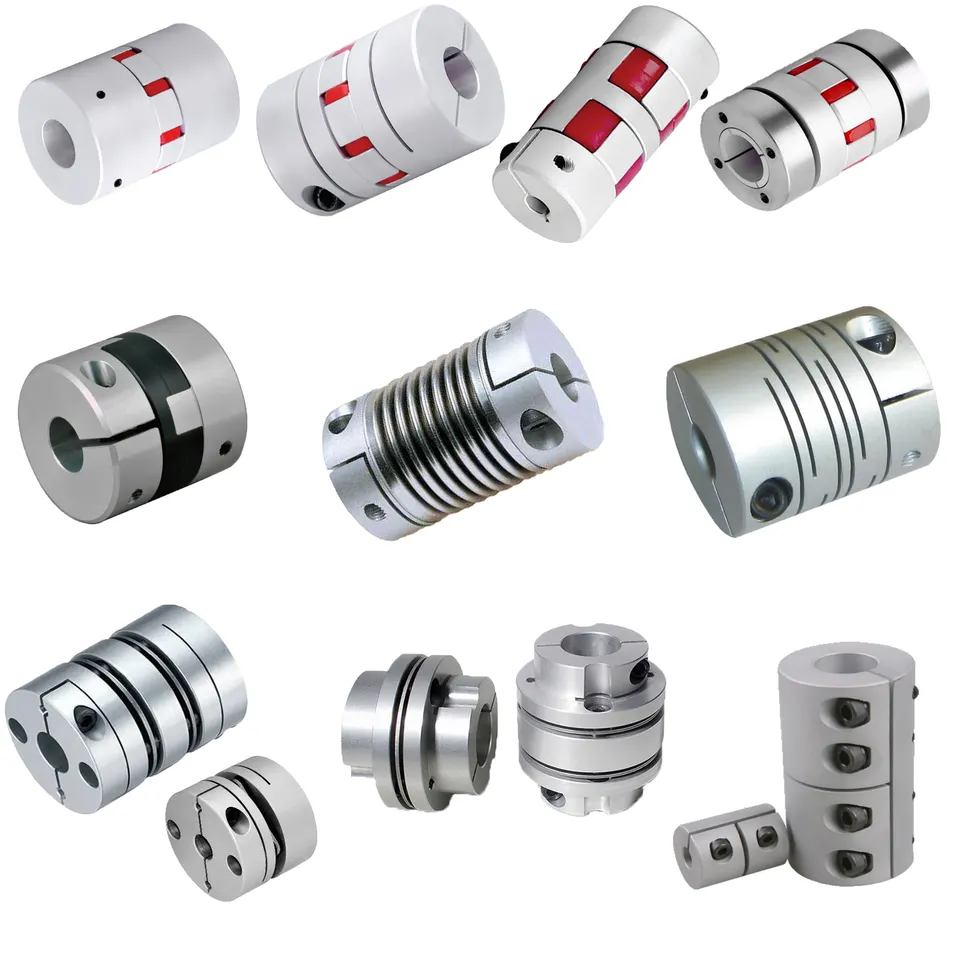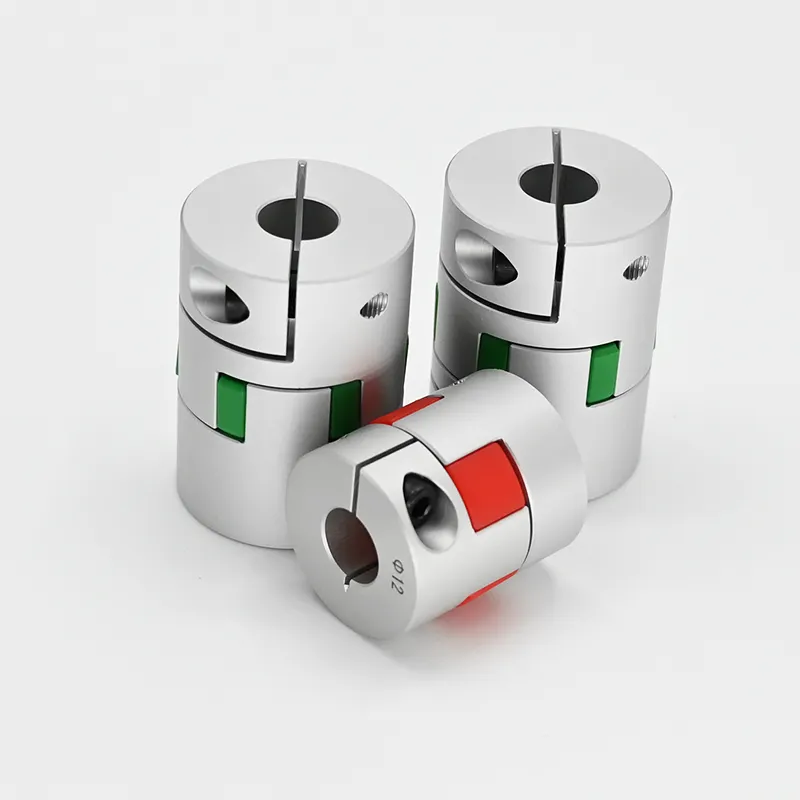Product Description
CHAIN COUPLING
Chain couplings are used for textile, agricultural machinery, lifting transporation, engineering, mining, light industry, chemical industry and other mechanical transmission shaft, suitable for high temperature, wet and dusty conditions, but not suitable for high-speed, sevious impact loading and axial force transmission occasions.
. Production Description
More Couplings
Other transmission products:
Roller Chain, Sprocket, V Pulley, Timing Pulley, Coupling, Gear Rack, Ball Bearing, Pillow Block Bearing
Packing and Delivery
FAQ
1. Can I get any sample ?
Samples are free to be available, if there is any in stock. But you have to absorb the relative courier fee.
2. How long is the delivery time for the production?
Production lead time is 30-60 days for the production.
3. What's your advantage?
Competitive price, good quality, high-experience engineers abailable

Torque and Speed Ratings for Different Sizes of Jaw Couplings
The torque and speed ratings for jaw couplings vary depending on their size and design. Manufacturers typically provide specifications for different sizes of jaw couplings, and it's essential to select the appropriate coupling based on the specific requirements of the application. Here's how torque and speed ratings are determined for jaw couplings:
- Torque Rating: The torque rating of a jaw coupling is the maximum amount of torque it can transmit without causing failure. It is typically specified in Newton-meters (Nm) or inch-pounds (in-lb). Larger jaw couplings generally have higher torque ratings than smaller ones, as they can accommodate more substantial loads.
- Speed Rating: The speed rating of a jaw coupling refers to the maximum rotational speed at which it can operate efficiently and reliably. It is usually specified in revolutions per minute (RPM). Higher-speed applications may require jaw couplings designed to handle increased rotational velocities.
It's essential to carefully match the torque and speed requirements of the application with the appropriate jaw coupling size. Undersized couplings may result in premature failure, while oversized couplings might lead to reduced flexibility and increased wear. Manufacturers' catalogs or product datasheets provide detailed information on the torque and speed ratings for each coupling size, helping engineers and designers make informed decisions when selecting the right coupling for their specific needs.

What are the temperature and environmental limitations of jaw couplings?
Jaw couplings, like many mechanical components, have temperature and environmental limitations that need to be considered for proper operation and longevity. These limitations are determined by the materials used in the construction of the jaw coupling and the specific operating conditions it will encounter. Here are some of the common temperature and environmental limitations of jaw couplings:
- Temperature Limitations: The operating temperature range of a jaw coupling depends on the materials used for its components, particularly the elastomer spider. Standard elastomers, such as polyurethane or nitrile rubber, are commonly used in jaw couplings and have typical temperature limits of approximately -40°C to 80°C (-40°F to 176°F). For more extreme temperature requirements, specialized elastomers with higher or lower temperature resistance may be available. It is essential to consider the ambient temperature and the temperature generated during equipment operation to ensure the jaw coupling remains within its temperature limits.
- Environmental Limitations: Jaw couplings can be affected by various environmental factors, and their performance might be influenced by the presence of certain substances. Some environmental limitations to consider include:
- Chemical Exposure: Exposure to harsh chemicals, oils, solvents, or corrosive substances can degrade the elastomer spider and other components of the jaw coupling. Specialized coatings or alternative materials may be required for applications with aggressive chemical environments.
- Dust and Debris: Excessive dust, dirt, or debris in the operating environment can accumulate on the coupling's surfaces and affect its performance. Regular cleaning and maintenance may be necessary to prevent buildup and ensure optimal operation.
- Moisture and Water: Some jaw couplings may not be suitable for applications where they are continually exposed to moisture or submerged in water. In such cases, water-resistant or corrosion-resistant materials may be necessary.
- Shock and Vibration: High levels of shock and vibration in the operating environment can accelerate wear and reduce the coupling's lifespan. Selecting a robust coupling design and appropriate materials can help mitigate the effects of these factors.
- Electrically Conductive Environments: In some applications, it is essential to consider the electrical conductivity of the coupling's materials, especially when dealing with sensitive electronic equipment.
It is crucial to consult the manufacturer's specifications and guidelines to ensure that the selected jaw coupling is suitable for the specific temperature and environmental conditions of the intended application. Proper maintenance, periodic inspections, and adhering to recommended operating parameters can extend the life and performance of the jaw coupling in a given environment.

Advantages of Using Jaw Couplings in Mechanical Systems
Jaw couplings offer several advantages in mechanical systems:
- Misalignment Compensation: Jaw couplings can tolerate angular, parallel, and axial misalignments between connected shafts, reducing the need for precise alignment during installation.
- Vibration Damping: The elastomeric spider in the jaw coupling absorbs shocks and vibrations, providing smoother operation and extending the life of connected equipment.
- Backlash-Free: Due to the tight fit between the jaws and the spider, jaw couplings are virtually backlash-free, enabling more accurate and responsive motion transfer.
- High Torque Capacity: Jaw couplings can handle high torque loads, making them suitable for a wide range of industrial applications.
- Easy Installation: With a simple design and few components, jaw couplings are easy to install and maintain.
- Cost-Effective: Compared to other types of couplings, jaw couplings are relatively cost-effective, providing reliable power transmission at a lower cost.
- Fail-Safe Design: In the event of a spider failure, the jaws can still maintain some torque transmission, allowing for limited operation and preventing sudden breakdowns.
Due to these advantages, jaw couplings are widely used in pumps, motors, fans, and various industrial machinery where misalignment, vibration, and torque transmission are critical factors.


editor by CX 2023-10-02
